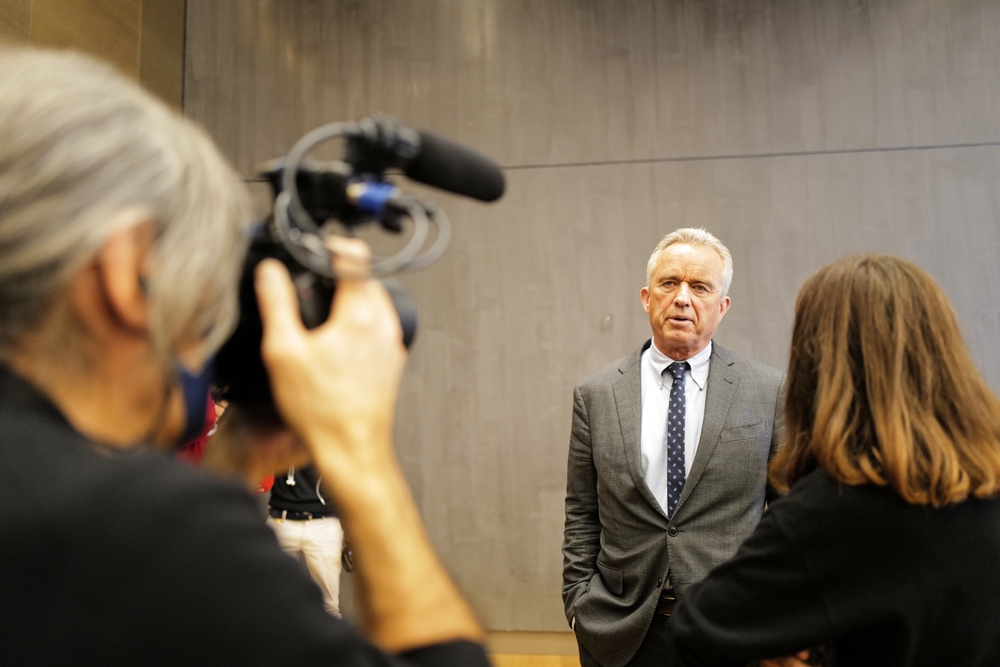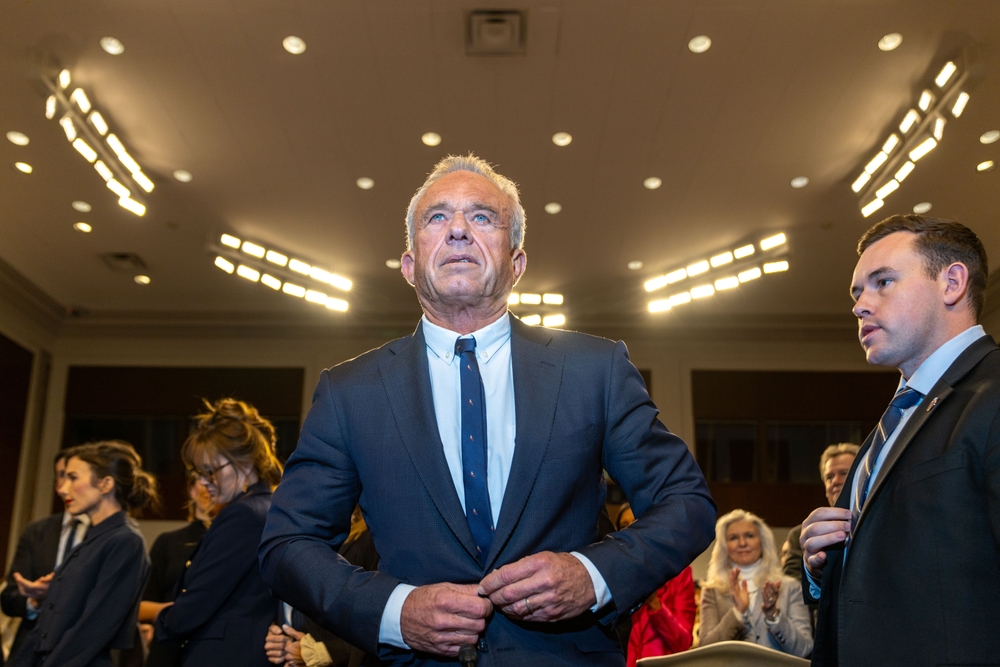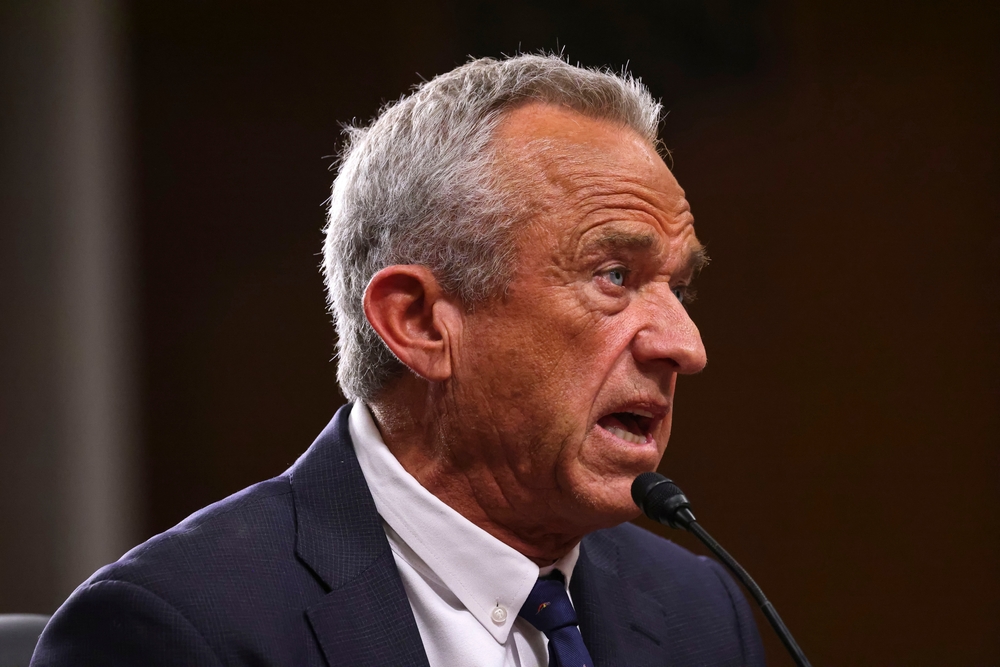Robert F. Kennedy Jr., now serving as U.S. Health Secretary, recently demanded a vaccine study be retracted. His unusual request targeted research published in a respected medical journal, sparking fierce debate. The story stirred headlines because it crossed lines between politics, science, and public trust, raising urgent questions about integrity and authority.
A Rare Political Intervention
Public health leaders rarely push for retractions. Normally, if officials disagree with findings, they respond with fresh evidence or debate. However, Kennedy broke this practice. In early August 2025, he released an opinion piece on TrialSite News. There, he criticized a large Danish study in Annals of Internal Medicine.
The research followed 1.2 million Danish children over two decades. It examined aluminium-containing vaccines and found no link to autoimmune disease, allergies, or developmental problems. The findings pointed clearly toward safety. Yet Kennedy called it “a propaganda stunt” and urged the journal to withdraw the paper immediately. His call for the vaccine study retracted drew swift attention worldwide.
Journal Stands Firm
The journal rejected his appeal. Christine Laine, editor-in-chief of Annals of Internal Medicine, said retraction is only justified when there are errors or misconduct. Since the Danish work showed neither, it stood as valid science.
Lead author Anders Peter Hviid defended the methods as well. He explained why no unvaccinated control group was included. In Denmark, only about 1.2 percent of children remain unvaccinated, far too few for reliable results. Privacy rules also prevented the release of raw data. For these reasons, removing the paper would make no sense. Instead of a vaccine study being retracted, the scientific community witnessed a journal defending its own standards.
Why the Criticism Fell Short
Kennedy’s criticisms sounded strong but lacked weight when examined closely. Asking for raw data ignored privacy law in Europe. Demanding an unvaccinated group ignored the reality that numbers were too small to work. Scientists call these design choices limitations, not cover-ups.

Therefore, the paper stayed in print. For researchers, this was proof that retraction of vaccine research requires evidence of real mistakes, not political pressure. Transparency remains important, but so does protecting reliable data practices.
Kennedy’s Long History With Vaccine Skepticism
This episode did not appear out of nowhere. For years, Kennedy has questioned vaccine safety, especially claims around autism and aluminium. Before joining government, he led Children’s Health Defense, an advocacy group that often opposed mainstream immunization. He also promoted theories tied to discredited or flawed research.

As Health Secretary, his influence only grew. He reshaped advisory boards, cut funding to some vaccine projects, and challenged CDC operations. Demanding a vaccine study retracted was another step in his pattern, but now carried the weight of official power. That made the clash even more dramatic.
The Cancellation of Vaccine Research Funding
Kennedy has now ordered the cancellation of roughly $500 million in federal funding for vaccine research. This money had been earmarked for projects focused on mRNA development and improvements to existing immunization programs. Supporters of the funding cuts said it reflected a shift in government priorities, arguing that resources should go toward alternative health approaches and stronger monitoring of existing vaccines.
Critics, however, viewed the move as a direct blow to scientific progress. They noted that mRNA technology had already shown its value during the COVID-19 pandemic and that halting this work could slow breakthroughs in other areas, including cancer treatment and flu prevention. Many researchers argued the cancellation signaled a worrying pattern of undervaluing scientific evidence.
Science and Politics Collide
Science is built to self-correct through peer review and ongoing debate. Retraction is a serious tool, used only when studies are proven wrong or fraudulent. When politics tries to force this process, tension follows.
The Kennedy episode highlights that struggle. His request to withdraw a vaccine paper blurred the line between valid critique and political influence. While raising questions is normal, the demand itself threatened to weaken the public’s trust in both science and government.

Why It Matters
Several lessons rise from the controversy. First, integrity in science depends on fair and consistent standards. Journals must resist outside pressure unless strong evidence of flaws exists. Second, public trust can erode when leaders dismiss peer-reviewed work without a clear cause. Third, policy should be shaped by evidence, not personal belief. Otherwise, scientific dialogue turns into a political fight instead of a search for truth.
Even so, debate about transparency is not worthless. Talking about raw data and control groups is healthy. But the correct setting is open discussion, not a top-down order to erase work.
Conclusion
The demand to see a vaccine study retracted was bold, but the journal refused. The authors stood by their data, and the editor insisted on protecting scientific standards. In the end, the study remained, and the clash revealed how fragile the boundary between politics and research can be.
Looking forward, science benefits from debate carried out with respect and evidence. Policy leaders may critique studies, but journals should guard the integrity of the record. Retraction of vaccine research belongs to the realm of proven errors, not political disputes. That balance is vital to keeping public health grounded in trust, facts, and open conversation.

